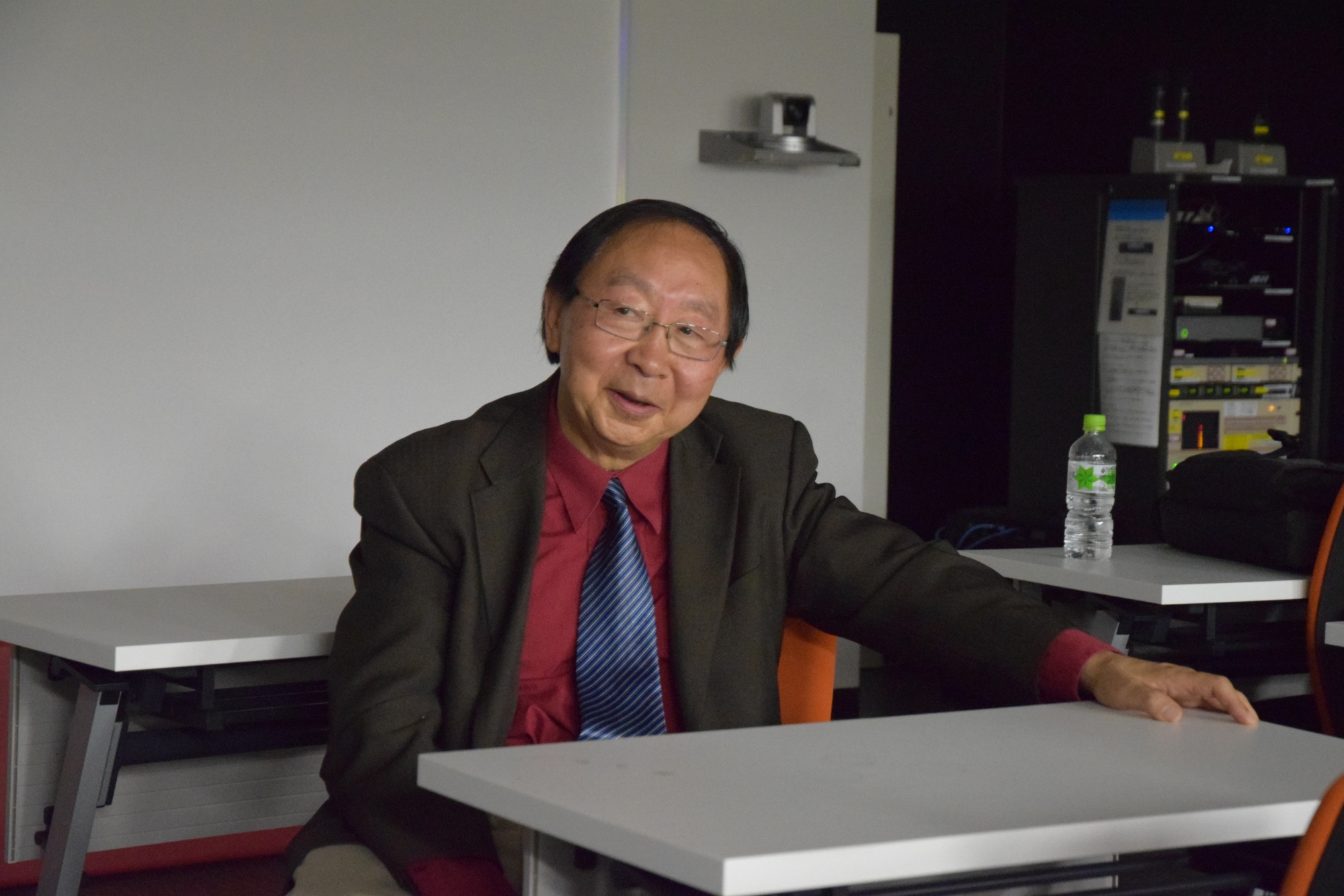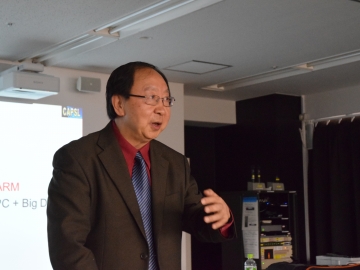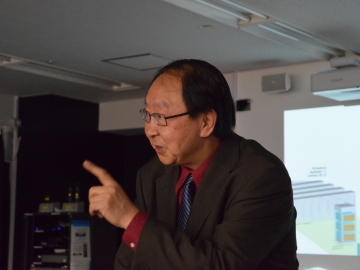Computing pioneer on the future of artificial intelligence, supercomputing and big data
Mon, May 9, 2016![[000008]](https://www.waseda.jp/top/en/assets/uploads/2016/05/000008-e1462771766729-610x434.jpg)
On March 28, visiting professor Guang Gao spoke to faculty and graduate students about the future of high-performance computing and big data, and related challenges and opportunities in supercomputing and artificial intelligence (AI) models.
Invited as a visiting professor under Waseda’s TGU (see “About TGU” below) sponsored ICT and Robotics research unit, Gao is known internationally as an expert in computer architecture and parallel systems. He specializes in extreme-scale computing system design for optimizing multi-core parallel processing and allowing efficient streaming of big data with real-time processing inputs from outside. According to Gao, this a field that has inspired recent research on parallel program execution models (including dataflow-inspired codelet models) and AI technology such as deep-learning.
While AI often seems to be an unreachable “holy grail,” the development of computing systems which can intelligently respond to fast-changing inputs is an evolving field whose progress is seen in news items such as machines beating human chess masters and self-driving cars.
In addition to the technical issues, Gao explained the inspiration and philosophy behind his work. Moving from China to the United States in early 1980s, he experienced the enormous innovative potential of individuals within a free market economy – based on individual actors guided by explicit laws and other boundary rules. Through this experience and his research, he decided this was more efficient than central planning and consolidated control. He also compared innovative schemes to biological functions, acting as white blood cells or lymph glands for computers, which constantly cleanse and protect the system – a novel vision of how to manage challenges in cyber-security.
![[000005]trimmed](https://www.waseda.jp/top/en/assets/uploads/2016/05/000005trimmed-610x346.jpg)
As for factors outside the laboratory, Gao emphasized the need for entrepreneurship in innovation, as ideas need to be built and tested in the real world, but they may also require timelines which exceed the patience of profit-driven venture capital investors. To this end he noted the unique and successful entrepreneurial ventures at Waseda such as Oscar Technologies and those involving various robotics innovations and their technology transfer to industry. Gao emphasized the importance of international encouragement and support to young entrepreneurs in Japan including bright and talented graduate students and young faculty members.
![[000015]](https://www.waseda.jp/top/en/assets/uploads/2016/05/000015-610x407.jpg)
Finally, Gao cited US President Barack Obama’s July 2015 Executive Order, which called for a coordinated national effort on advanced computing, as evidence of its vital importance. However, he stressed the advantages of multinational projects, because of the necessities of scale and talent. His work at Waseda and its TGU-sponsored projects will surely contribute to that objective.
About TGU
The Top Global University Project is 10-year initiative funded by the Japanese Ministry of Education, Culture, Sports, Science and Technology (MEXT). Waseda is one of only two private institutions selected with 11 national public ones in the top (“Type A”) group as leaders in globalization of Japan’s society and economy. For more information see the MEXT announcement.
















